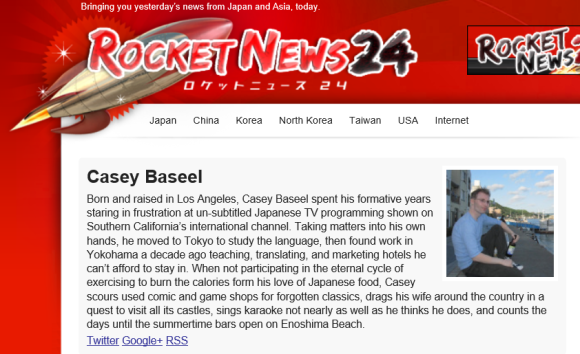
Unless your definition of “almost none” is “enough to get a side job.” Then go right ahead.
How large of a quantity can something be and still be called “almost none?” Most people would say that depends on the thing and situation in question. For example, if there are two timber wolves living in an entire forest, we could probably say there are almost no wolves there. We probably wouldn’t describe the lupine population the same way, though, if it was in your living room.
Still, that “almost” part is tricky, since it tacitly acknowledges that there is some amount. If you’re applying for a job and the company says there’s “almost no overtime” required, that means the number of overtime hours has to be more than zero. Since most people don’t like having to work overtime, recruiters are naturally going to try to stretch that leeway as far as they can, but even still, one Japanese company’s definition of “almost no overtime” is taking the phrase to a ridiculously inaccurate degree.
ちょっと言ってる意味がよく解らない。 pic.twitter.com/EbG83h6dEH
— サークル【∞インマテ】●2/25東京コミティア147【ち29a】 (@nachi_yanase) March 16, 2016
While looking through job postings, Japanese Twitter user @nachi_yanase found this company’s, which boasts:
Almost no overtime.
Required monthly overtime is only approximately 35 hours, so you can go home at just about the regular time your shift is scheduled to finish.
Yes, you read correctly: 35 hours a month. Assuming a 20-business day month, that works out to an hour and 45 minutes of extra work every day. If you’re scheduled for an eight-hour shift, it’s equivalent to more than an extra day’s worth of work every week. With 35 hours a month, you could even start a second, part-time job.
Oh, and white-collar workers in Japan generally don’t get paid for overtime.
The company is even bold enough to provide this information at the top of its list of what makes the job attractive, boasting that “You’ll have time to pick up your kids from school or take classes related to your interests after work.”
“Hold up,” @nachi_yanase pleaded along with tweeting the photo, “I’m really not following what you’re saying.” Several of his followers chimed in voicing their agreement with his exasperation.
Unfortunately, this sort of discrepancy in how people applying for jobs and companies offering them define “almost no overtime” happens often here. Back in my pre-RocketNew24 days, I was offered a job by a Japanese company that’s one of the largest in its industry. When I asked my two interviewers how much overtime I could expect, one told me, “Basically, our company doesn’t require overtime,” and the second smiled and chimed in with “It would only be two or three hours a day.”
▼ And the rest is history.
Thankfully, in both my case and @nachi_yanase’s, the companies were considerate enough to give us the specific data we needed to make our decisions. Still, let this be a lesson: If you’re applying for a job in Japan, when the subject of working hours comes up, make sure you get some numerical data before you sign that contract.
Source: Hamster Sokuho
Top image: Pakutaso
Insert image ©RocketNews24


 Which jobs in Japan have the most and least overtime? Survey investigates
Which jobs in Japan have the most and least overtime? Survey investigates Nissin comes out with new Cup Noodle using … “almost real sea urchin”!
Nissin comes out with new Cup Noodle using … “almost real sea urchin”! New website lets artists post drawings that self-destruct in 24 hours
New website lets artists post drawings that self-destruct in 24 hours “Death day” quiz trending on Japanese Twitter uses data to predict the exact date you will die
“Death day” quiz trending on Japanese Twitter uses data to predict the exact date you will die The five least stressful jobs, as ranked by Japanese working people
The five least stressful jobs, as ranked by Japanese working people How to order snacks on a Shinkansen bullet train in Japan
How to order snacks on a Shinkansen bullet train in Japan Japan’s new difficult-to-drink-from beer glass protects your liver, but it’s a brutal experience
Japan’s new difficult-to-drink-from beer glass protects your liver, but it’s a brutal experience Demon Slayer: Kimetsu no Yaiba gets new roller coaster attractions and food at Universal Studios Japan
Demon Slayer: Kimetsu no Yaiba gets new roller coaster attractions and food at Universal Studios Japan Burger King Japan suddenly adds Dr. Pepper and Dr. Pepper floats to its menu nationwide
Burger King Japan suddenly adds Dr. Pepper and Dr. Pepper floats to its menu nationwide New Pokémon ice cream, dessert drinks, and cool merch coming to Baskin-Robbins Japan【Pics】
New Pokémon ice cream, dessert drinks, and cool merch coming to Baskin-Robbins Japan【Pics】 New Nintendo Lego kit is a beautiful piece of moving pixel art of Mario and Yoshi【Photos】
New Nintendo Lego kit is a beautiful piece of moving pixel art of Mario and Yoshi【Photos】 New samurai glasses are Japan’s latest weird must-have souvenir
New samurai glasses are Japan’s latest weird must-have souvenir Kyoto Tower mascot termination reveals dark side behind cute Japanese characters
Kyoto Tower mascot termination reveals dark side behind cute Japanese characters Hello, cosmetics! Clinique teams up with Hello Kitty this summer for first-time collaboration
Hello, cosmetics! Clinique teams up with Hello Kitty this summer for first-time collaboration This Nara workshop has been making deer crackers for more than 100 years and offers tours【Photos】
This Nara workshop has been making deer crackers for more than 100 years and offers tours【Photos】 Nintendo history you can feel – Super NES, N64, and GameCube controllers become capsule toys
Nintendo history you can feel – Super NES, N64, and GameCube controllers become capsule toys “The most Delicious Cup Noodle in history” – Japan’s French Cup Noodle wins our heart【Taste test】
“The most Delicious Cup Noodle in history” – Japan’s French Cup Noodle wins our heart【Taste test】 Starbucks releases a cute Frappuccino and Unicorn Cake…but not in Japan
Starbucks releases a cute Frappuccino and Unicorn Cake…but not in Japan McDonald’s Japan’s Soft Twist Tower: A phantom ice cream only sold at select branches
McDonald’s Japan’s Soft Twist Tower: A phantom ice cream only sold at select branches Yabai Ramen: What makes this Japanese ramen so dangerous?
Yabai Ramen: What makes this Japanese ramen so dangerous? Finally! Nintendo Japan expands Switch 8-bit controller sales to everybody, Online member or not
Finally! Nintendo Japan expands Switch 8-bit controller sales to everybody, Online member or not Japanese government wants to build luxury resorts in all national parks for foreign tourists
Japanese government wants to build luxury resorts in all national parks for foreign tourists To combat declining birth rate, Japan to begin offering “Breeding Visas” to foreigners
To combat declining birth rate, Japan to begin offering “Breeding Visas” to foreigners 10 things you should buy at 7-Eleven in Japan
10 things you should buy at 7-Eleven in Japan Studio Ghibli releases anime heroine cosplay dresses that are super comfy to wear
Studio Ghibli releases anime heroine cosplay dresses that are super comfy to wear Woman charged for driving suitcase without a license in Osaka
Woman charged for driving suitcase without a license in Osaka Studio Ghibli unveils My Neighbour Totoro miniature house model
Studio Ghibli unveils My Neighbour Totoro miniature house model Kyoto experiencing problems with foreign tourists not paying for bus fares, but not on purpose
Kyoto experiencing problems with foreign tourists not paying for bus fares, but not on purpose Fighting mild hunger with a Japanese soda that turns into jelly in the stomach【Taste test】
Fighting mild hunger with a Japanese soda that turns into jelly in the stomach【Taste test】 Studio Ghibli’s Howl’s Moving Castle tapestry unveiled in Japan for first time
Studio Ghibli’s Howl’s Moving Castle tapestry unveiled in Japan for first time McDonald’s new Happy Meals offer up cute and practical Sanrio lifestyle goods
McDonald’s new Happy Meals offer up cute and practical Sanrio lifestyle goods Sales of Japan’s most convenient train ticket/shopping payment cards suspended indefinitely
Sales of Japan’s most convenient train ticket/shopping payment cards suspended indefinitely Sold-out Studio Ghibli desktop humidifiers are back so Totoro can help you through the dry season
Sold-out Studio Ghibli desktop humidifiers are back so Totoro can help you through the dry season Japanese government to make first change to romanization spelling rules since the 1950s
Japanese government to make first change to romanization spelling rules since the 1950s Foreigner’s request for help in Tokyo makes us sad for the state of society
Foreigner’s request for help in Tokyo makes us sad for the state of society Ghibli founders Toshio Suzuki and Hayao Miyazaki contribute to Japanese whisky Totoro label design
Ghibli founders Toshio Suzuki and Hayao Miyazaki contribute to Japanese whisky Totoro label design Doraemon found buried at sea as scene from 1993 anime becomes real life【Photos】
Doraemon found buried at sea as scene from 1993 anime becomes real life【Photos】 Tokyo’s most famous Starbucks is closed
Tokyo’s most famous Starbucks is closed Princesses, fruits, and blacksmiths: Study reveals the 30 most unusual family names in Japan
Princesses, fruits, and blacksmiths: Study reveals the 30 most unusual family names in Japan Vending machines in Tokyo Station not getting restocked, exploitative “black company” to blame
Vending machines in Tokyo Station not getting restocked, exploitative “black company” to blame Five things that shock Japanese people living abroad
Five things that shock Japanese people living abroad Twitter manga shows why “Quit your job” isn’t such an easy solution for suicidal workers in Japan
Twitter manga shows why “Quit your job” isn’t such an easy solution for suicidal workers in Japan Train driver sues Japan Rail…over 56 yen for a one-minute delay
Train driver sues Japan Rail…over 56 yen for a one-minute delay Sailor Moon grows up and gets a corporate job in new commercial 【Video】
Sailor Moon grows up and gets a corporate job in new commercial 【Video】 Nearly half of young Japanese women say they “hate” the company they work for in survey
Nearly half of young Japanese women say they “hate” the company they work for in survey Japanese companies want to monitor employees working overtime using in-office flying drones
Japanese companies want to monitor employees working overtime using in-office flying drones Is Japan overworking its teachers? One exhausted educator says, “YES!”
Is Japan overworking its teachers? One exhausted educator says, “YES!” Japanese netizens rewrite fairy tales in modern corporate situations so real they make us weep
Japanese netizens rewrite fairy tales in modern corporate situations so real they make us weep Eringi mushrooms can be an unexpected source of otaku loneliness, Twitter learns
Eringi mushrooms can be an unexpected source of otaku loneliness, Twitter learns Is work more important to Japanese salarymen than their girlfriends? Survey investigates
Is work more important to Japanese salarymen than their girlfriends? Survey investigates Breast-flattening bra for cosplayers, women who want less bust-focused attention on sale in Japan
Breast-flattening bra for cosplayers, women who want less bust-focused attention on sale in Japan Spend a shift working in a terrible, soul-crushing Japanese company at this “special” Tokyo event
Spend a shift working in a terrible, soul-crushing Japanese company at this “special” Tokyo event I can’t believe it’s not fish eggs? Taste-testing Japan’s imitation “almost ikura”【Photos】
I can’t believe it’s not fish eggs? Taste-testing Japan’s imitation “almost ikura”【Photos】 It’s all about the money: The best (and worst) paid student jobs in Japan
It’s all about the money: The best (and worst) paid student jobs in Japan Still don’t want a smartphone? Japanese women might want you
Still don’t want a smartphone? Japanese women might want you
Leave a Reply